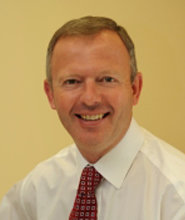Ken Hemmings
Consultant and specialist in restorative dentistry

BDS, MSc, DRDRCS, MRDRCS, FDSRCS, ILTM, FHEA
Recognised by the General Dental Council as a specialist in:
Restorative dentistry, Prosthodontics, Periodontology and Endodontics.
Dental implants, veneers, crowns, bridges, bleaching, aesthetic dentistry, cosmetic dentistry are all part of Restorative Dentistry.

Outcome
I am usually optimistic and realistic about what can be achieved. Please ask me if you have specific enquiries not covered by the information that I have given you.
Emergency care
Ken attends the practice on Mondays, Tuesdays and alternate Wednesdays. He attends the Eastman Dental Hospital on alternate Wednesdays and Thursdays. I am rarely available immediately but messages are reliably passed on by good staff at these locations.
Out of normal working hours I would be able to give you advice by contacting me on my mobile telephone within 24 hours. I have consultant colleagues in Oxford and London who will help if required. Occasionally, it may be more convenient to contact your own dentist.
Complications
Good planning usually highlights potential complications and these would be discussed with you. It is important that treatment is completed in as short a period of time as possible allowing for normal healing. Delays for whatever reason increase the risk of complications.
Guarantee/Warranty
Naturally, when dealing with the human body, no guarantees are possible. Nonetheless, I shall be responsible for all the restorations I place for a period of 1 Year. Experience has demonstrated that this is sufficient time for any latent problems to be manifest.
It will be your obligation to maintain meticulous oral hygiene and remain as plaque free as possible. Most of the problems encountered after extensive treatment are usually the result of the patient’s neglect of oral hygiene. I cannot stress too strongly the need for your total cooperation in maintaining meticulous oral hygiene during and after your treatment. You should reduce your intake of refined carbohydrates and maintain a nutritious diet that does not contribute to your oral problems. You will also need to use a high concentration fluoride tooth paste or fluoride rinse daily to reduce the possibility of dental decay. After most treatments you can return to normal care with your dentist. A review with x-rays after one year after implant treatment provides guidance on long term success. Occasionally, if treatment has been extensive I advise regular review with myself.



